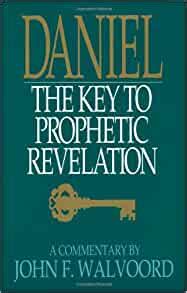Цитата Амброуза Бирса
ЧЕРНЫЙ, прил. Одаренный большой стойкостью, чтобы переносить зло, причиняемое другому. Когда Зенону сказали, что одного из его врагов больше нет, он был глубоко тронут. "Что!" — сказал один из его учеников. — Ты плачешь о смерти врага? "Ах, это правда," ответил великий стоик; «Но вы бы видели, как я улыбаюсь смерти друга».
Связанные цитаты
Мой дедушка был очень одаренным человеком, и среди его многих качеств одно всегда особенно импонировало мне. Если прошлое было книгой, которую он читал и перечитывал много раз, то будущее было лишь еще одним литературным произведением искусства, в которое он вкладывал себя с глубокой мыслью и сосредоточенностью. Бесчисленное количество людей после его смерти рассказывали мне, как он читал в будущем, и это, безусловно, было одной из его очень сильных сторон.
Христианин обязательно наживет себе врагов. Одной из его целей будет не сделать ничего; но если поступая правильно и веря в истину, он потеряет всех земных друзей, он сочтет это малой потерей, так как его великий Друг на небесах будет еще более дружелюбен и откроется ему более милостиво, чем когда-либо. .
Что заставляет мужчину любить Смерть, Фанни? Это потому, что он надеется предотвратить свою смерть, наблюдая за чужими смертями? Надеется ли он поглотить Смерть, пожирая казни своими глазами? Я никогда не пойму этого, даже если доживу до восьмисот лет. Человеческий Зверь больше Зверь, чем Человек, это правда.
Сократ был главным святым стоиков на протяжении всей их истории; его отношение во время суда, его отказ бежать, его спокойствие перед лицом смерти и его утверждение, что виновный в несправедливости наносит себе больше вреда, чем его жертва, — все это идеально соответствовало стоическому учению. Так же как и его равнодушие к жаре и холоду, его простота в еде и одежде и его полная независимость от всех телесных удобств.
Нико шагнул вперед. Вражеская армия отступила перед ним, словно он излучал смерть, что, конечно же, он и сделал. Сквозь защитную маску своего шлема в форме черепа он улыбнулся. «Получил ваше сообщение. Не слишком ли поздно присоединиться к вечеринке?» «Сын Аида». Кронос сплюнул на землю. — Ты так любишь смерть, что хочешь испытать ее? — Твоя смерть, — сказал Нико, — была бы для меня великой. «Я бессмертен, дурак! Я сбежал из Тартара. Тебе здесь нечего делать и нет шансов выжить». Нико обнажил свой меч — три фута острого стигийского железа, черного, как кошмар. "Я не согласен.
Я был младенцем, когда моя мать пошла смотреть, как сожгли атеиста. Она взяла меня туда. Жрецы в темных одеждах собрались вокруг кучи; Толпа смотрела молча; И когда преступник прошел с бесстрашным выражением лица, Сдержанное презрение в его неизменном взгляде, Смешанное с тихой улыбкой, спокойно сияло дальше; Жадный огонь охватил его мужественные члены; Его решительные глаза скоро ослепли; Его предсмертная мука разорвала мое сердце! Бесчувственная толпа Издала торжествующий крик, и я заплакал. Не плачь, дитя! воскликнула моя мать, потому что тот человек Сказал: «Бога нет».
Великий пианист-виртуоз Падеревский однажды играл перед богатой и королевской публикой. После блестящего выступления элегантная дама пришла в восторг от великого артиста. Она сказала: «Ах, маэстро, вы гений!» Падеревский язвительно ответил: «Ах да, мадам, но до того, как я стал гением, я был комком!» Он имел в виду, что его нынешнее признание не было преподнесено ему на блюдечке с голубой каемочкой. Он тоже когда-то был маленьким мальчиком, усердно репетирующим свои гаммы. И даже на пике карьеры за каждым блестящим выступлением стояли бесчисленные часы тренировок и подготовки.
Итак, потому что ни в каком другом человеке, кроме Иисуса из Назарета, Бог сначала стал человеком (в Своем рождении), затем понес наши грехи (в Своей смерти), затем победил смерть (в Своем воскресении) и затем вошел в Свой народ (своим Духом). , он однозначно способен спасать грешников. Ни у кого нет его квалификации.
Его великий акт снисходительности в становлении человеком и Его готовность быть полностью униженными в смерти на кресте представлены здесь перед нами как высший пример того, каким должно быть наше отношение. Если Иисус Христос, Господь славы, был готов быть послушным до смерти, то насколько больше должны спасенные по благодати грешники, которые всем обязаны Богу, вернуть спасшему их Богу жизнь, которую Он искупил.
































